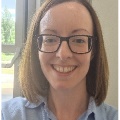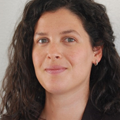
Amitava Mukhopadhyay
(MorphoSys AG)
Show Bio
Amitava Mukhopadhyay
Amitava is a Biostatistician at MorphoSys AG, Germany. He has worked for more than eighteen years in pharmaceutical industry across all phases of clinical trials in several therapeutic areas especially, in Oncology, Osteoporosis, Cardiovascular,
Infectious diseases. Previously, he has also worked at Novartis, Cytel and IQVIA. Being passionate in science, Amitava has continued his research as a post-doctoral fellow after receiving his PhD degree in modelling. He has been engaged
with PSI Scientific Committee since 2018.
Julia Niewczas
Julia is a Statistical Science Associate Director in Late Oncology Biometrics team at AstraZeneca. Previously she worked in statistical methodology teams at Janssen and AstraZeneca. Her areas of expertise include adaptive and group sequential
designs, and multiplicity. She is interested in Bayesian topics of inclusion of external data. She received her BSc and MSc at Lancaster University in the UK and holds a PhD in Biostatistics from Medical University of Vienna. Julia joined
the PSI Scientific Committee in 2020.
Julia joined the PSI Scientific Committee in 2020.
Julia Saperia
Julia is a statistical assessor at the Medicines and Healthcare products Regulatory Agency, where she has been working since 2012. She works across therapeutic areas and enjoys the variety and challenges. She completed her MSc in Statistics
with Applications in Medicine from the University of Southampton in 2003 and between then and starting at the MHRA she has worked as a statistician and systematic reviewer in academia and in the public sector. She joined the PSI scientific
committee in 2016. In her spare time -- oh, wait, what is that again? -- she sings (quite well) and plays the violin (very badly).
Maria Efstathiou
Lorem Ipsum is simply dummy text of the printing and typesetting industry. Lorem Ipsum has been the industry's standard dummy text ever since the 1500s, when an unknown printer took a galley of type and scrambled it to make a type specimen
book.
It has survived not only five centuries, but also the leap into electronic typesetting, remaining essentially unchanged. It was popularised in the 1960s with the release of Letraset sheets containing Lorem Ipsum passages, and more recently
with desktop publishing software like Aldus PageMaker including versions of Lorem Ipsum.
Martin Jenkins
Martin Jenkins is a Biometrics Team Leader at AstraZeneca in Cambridge. He is the statistical lead for several late stage product teams in the respiratory therapy area, and also has experience in rheumatology, dermatology and inflammatory
diseases. Martin initially joined AstraZeneca in 2006, providing statistical support to translational science before moving into later phase clinical trials. He has been a member of the PSI scientific committee since 2017 and prior to
that chaired the PSI Biomarker Special Interest Group for 6 years. He has published or presented in the fields of adaptive phase II/III seamless designs, biomarkers and estimands. Martin holds a undergraduate degree and masters in Mathematics
from Cambridge University.
Sarah Williams
Sarah is a senior principal statistician at Roche and has over 20 years' experience in the pharmaceutical industry, most of that time spent at Roche.
Starting as a graduate statistician, she now leads more complex projects and leads the data science teams. She is passionate about the important role that statisticians play in their cross functional teams and in advancing the use of statistics
in the healthcare industry.
Sarah has been a member of the Scientific Committee for 8 years, chairing the conference in 2024 & 2025 – one of the proudest moments of her career.
Sue Todd
Sue is Professor of Medical Statistics within the Department of Mathematics and Statistics at the University of Reading and has over 25 years’ experience as an applied academic statistician working in the fields of clinical trials and
epidemiology. Her particular research areas of interest are adaptive designs and sequential clinical trials. Recent research has considered methodology for novel study design and analysis in these areas, in particular multi-arm multi-stage
clinical trials involving treatment selection and multiple endpoints of interest.
Tobias Mütze
Tobias is a statistical methodologist at Novartis in Basel, Switzerland, and works primarily on late phase studies. Previously, Tobias worked as a CMC statistician in the development of vaccines and biologicals. His current research interests
are adaptive clinical trial designs, recurrent event modelling, estimands, and more recently missing data methodology. He received his PhD in the area of biostatistics from the University of Göttingen, Germany, and holds a BSc and
a MSc in mathematics. Tobias joined the PSI Scientific Committee in January 2019.
Tom Burnett
Tom is a Lecturer in Statistics at the University of Bath. Prior to this he spent time as a postdoctoral researcher at the MRC Biostatistics Unit at the University of Cambridge and the Medical and Pharmaceutical Statistics unit at Lancaster
University. His research focus is adaptive designs for clinical trials, with a primary interest in optimal decision making methods suitable for late phase trials
Kate Taylor
Kate is a Biostatistics Senior Manager working for Amgen in their Uxbridge office, where she has been for the last 8 years. During that time, she has worked across a number of disease areas and phases in their oncology pipeline. She has also
worked in a CRO and completed a placement year at GSK as well as working in market research for a number of years. Kate has been a member of the PSI Scientific Committee since 2016 and was the Conference Chair and a board member for 2019
and 2020. She was also a part of the PSI CALC group for 2 years. Outside of work she enjoys spending time with family and friends and also loves baking and running.
Ian Wadsworth
Ian is a Principal Statistician at Phastar, where he has mainly worked on late phase oncology studies since 2018. Prior to this, Ian worked at Lancaster University as a Research Associate in medical statistics for six years. Whilst in this
role, Ian studied part-time for a PhD in Statistics looking at extrapolation in paediatric medicine development. Before PhD, he studied for a BSc in Mathematics and MSc in Statistics, also at Lancaster University. Ian joined the PSI scientific
committee mid-2022.
Vicky Marriott
Vicky is the Head of Statistics at PHASTAR and has nearly 20 years of experience as a statistician in the Pharmaceutical Industry. She previously worked at a mix of small and large CROs, and spent 5 years at Boehringer Ingelheim.
Starting as a graduate statistician, she has moved from a project statistician role to a management role, and now oversees the strategic direction, operational performance and talent development of the Statistics team at Phastar.
She’s passionate about supporting training and career progression within the industry. She previously sat on the Board of Directors for PSI as the head of the Careers and Academic Liaison team, and has been a part of the Scientific Committee
for the past 3 years.
Clelia Cahuzac
Clélia is a Senior Statistician at Roche in Basel, Switzerland. She has worked across different types of organizations, from CRO to mid-size pharma and biotech companies, before joining Roche in 2023. Starting as a junior statistician,
she gained experience across various indications (mainly dermatology, oncology, and autoimmune diseases) and focused on late-stage trials in breast cancer in recent years.
This year she is taking on a new challenge as the lead statistician for early-stage development molecules in immunology. She is passionate about community building and advocates for psychological safety in the workplace. She co-leads several
initiatives at Roche to facilitate the onboarding of new statisticians and programmers, foster connections, and to create a supportive community where people can share and learn from each other. Clélia joined the PSI Scientific
Committee in 2024.
Jyoti Soni
Jyoti is a Statistical Leader at GSK Vaccine where she is working since past 14 years. She has worked across different indications and phases for Viral vaccine and is also working on Neuroscience study. Before joining GSK, she has worked as
Consultant to Government of India, India on public policy planning and with ICMR, India for WHO funded project on HIV/AIDS in India. Her current research interest are adaptive clinical study design, correlate of protection and more recently
neuroscience specific statistical methodology. Jyoti has joined PSI Scientific Committee in 2024.
Lara Wolfson
Lara Wolfson, PhD, currently serves as the Associate Vice President and Head of HTA Statistics at MSD (known as Merck & Co. in the US and Canada), based in Zurich, Switzerland. In this role, she oversees a dedicated team of over 75 statisticians,
working collaboratively across the organization to develop innovative quantitative solutions for Health Technology Assessment (HTA) challenges. Lara has had a diverse career path, including roles as a value-evidence strategy leader in
Vaccines at Merck's Center for Observational Research and Real-World Evidence, and in Global Public Health and Global Market Access at the Janssen Pharmaceutical Companies of Johnson & Johnson. Earlier in her career, Lara held various
roles at the World Health Organization, where she focused on epidemiology, health economics, and programme management for vaccines and infectious diseases. Additionally, she has held academic positions at Brigham Young University and the
University of Waterloo. Dr Wolfson co-leads the HTA European Special Interest Group (ESIG) of EFSPI (European Federation of Statisticians in the Pharmaceutical Industry). She holds MS and PhD degrees in Statistics from Carnegie Mellon
University (USA) and completed her undergraduate studies at Simon Fraser University (Canada).
Nicola Scott
Nicola is a Statistics Director at GSK in Stevenage, with over 25 years’ experience as a clinical statistician in the pharmaceutical industry, where she currently leads the HIV Early Development team at GSK. During her career, she has
worked across all phases of clinical drug development, from first-time into human studies through to marketing approvals and post-marketing commitments, across indications in multiple therapeutic areas including Immuno-Inflammation, COVID-19,
Respiratory and Neurosciences. Nicola holds an undergraduate degree in Mathematics and Its Applications from Cardiff University and Masters in Medical Statistics from Leicester University. Outside of work Nicola is a keen amateur photographer.
Nicola has been a member of the PSI Scientific Committee since July 2024.
Ayon Mukherjee
Ayon is a Statistical Methodologist at Merck KGaA in Darmstadt Germany. He specializes in providing consultancy and methodological support in the area of Adaptive Trial designs, Estimands, Master Protocols and Bayesian inference. He has over
12 years of experience in the clinical trial domain as a statistician and holds a PhD degree in Statistics from University of London where his research focused on developing Covariate-Adjusted Response Adaptive (CARA) designs for survival
trials. His present research involves Bayesian methods for dose optimization trials in oncology, adaptive randomization methods for MAMS trials, Group Sequential designs, Estimands in oncology, Survival Analysis, Stochastic process and
methods of statistical inference. Within the Advanced Biostatistical Science team at Merck KGaA, Ayon is the subject matter expert on providing methodological consultancy on Response Adaptive Randomization methods, designing dose optimization
trials for exploratory phases using Bayesian methods, and randomized withdrawal trial designs for late phase studies. He is also presently involved in collaborating with University of Cambridge in supervising PhD students in the field
of Adaptive design methods. Ayon has a BSc in Mathematics and Statistics from Coventry University and MSc in Applied Statistics from University of Oxford in the United Kingdom. Outside work, Ayon loves watching cricket matches and movies.
Ayon joined the PSI scientific committee in April 2024.
Inês Antunes dos Reis
Inês has been a statistical assessor at the Medicines and Healthcare products Regulatory Agency (MHRA) since 2018. Her work focuses on assessment of marketing authorisation applications, providing scientific advice to companies,
assessment of clinical investigation applications, and participating in the development of regulatory guidelines. She has over 7 years of experience in the regulatory system, having previously worked for the European Medicines Agency
(EMA). She supported the ICH E9(R1) expert working group on Estimands and Sensitivity Analysis in Clinical Trials and contributed to the E9(R1) training materials published in the ICH website.

116fcaff3ad665b3a176ff00001f6b97.png?sfvrsn=d4b9afdb_0)



















